-
 Bitcoin
Bitcoin $109,583.2239
0.19% -
 Ethereum
Ethereum $2,583.4612
0.48% -
 Tether USDt
Tether USDt $1.0003
-0.04% -
 XRP
XRP $2.2681
0.70% -
 BNB
BNB $659.9218
-0.52% -
 Solana
Solana $151.4961
-0.37% -
 USDC
USDC $0.9999
-0.02% -
 TRON
TRON $0.2861
1.20% -
 Dogecoin
Dogecoin $0.1718
0.04% -
 Cardano
Cardano $0.5960
-0.07% -
 Hyperliquid
Hyperliquid $40.1233
2.85% -
 Sui
Sui $2.9974
2.48% -
 Bitcoin Cash
Bitcoin Cash $497.1279
-1.76% -
 Chainlink
Chainlink $13.7275
-0.22% -
 UNUS SED LEO
UNUS SED LEO $9.0241
0.70% -
 Avalanche
Avalanche $18.5536
-0.88% -
 Stellar
Stellar $0.2421
1.39% -
 Toncoin
Toncoin $2.8593
-0.51% -
 Shiba Inu
Shiba Inu $0.0...01187
-0.07% -
 Litecoin
Litecoin $90.0023
2.90% -
 Hedera
Hedera $0.1590
2.79% -
 Monero
Monero $322.1495
0.00% -
 Polkadot
Polkadot $3.5453
-1.00% -
 Dai
Dai $1.0000
-0.01% -
 Bitget Token
Bitget Token $4.5733
-1.06% -
 Ethena USDe
Ethena USDe $1.0002
-0.01% -
 Uniswap
Uniswap $7.6345
3.03% -
 Aave
Aave $279.2583
0.47% -
 Pepe
Pepe $0.0...01003
-1.52% -
 Pi
Pi $0.4941
-0.32%
how blockchain technology is useful in healthcare domain
Blockchain's distributed ledger technology safeguards patient data, empowers them with ownership, and optimizes healthcare processes, revolutionizing the domain with enhanced security, transparency, and collaboration.
Oct 12, 2024 at 10:48 pm

How Blockchain Technology Revolutionizes the Healthcare Domain
Blockchain technology is a revolutionary force that has the potential to transform every sector, including healthcare. This distributed ledger technology enables the secure and transparent exchange of data, making it ideal for applications in healthcare, where data privacy, integrity, and efficiency are paramount. Here are the key benefits and applications of blockchain in the healthcare domain:
1. Enhanced Data Privacy and Security:
Blockchain networks store data in encrypted, distributed ledgers, preventing unauthorized access and data tampering. This feature ensures the confidentiality and integrity of sensitive patient records, such as medical history, diagnoses, and treatment plans.
2. Improved Patient Ownership and Control:
Blockchain technology empowers patients with greater control over their health data. They can choose to share their data with healthcare providers on a need-to-know basis, enhancing their privacy and reducing the risk of misuse.
3. Optimized Supply Chain Management:
Blockchain can track the movement of drugs and medical devices throughout the supply chain, ensuring transparency and accountability. This helps prevent counterfeiting, improves quality control, and reduces the time and cost of delivery.
4. Enhanced Medical Research and Drug Development:
Blockchain can facilitate the collaboration between researchers and scientists. By sharing medical data securely, researchers can gain insights into disease patterns, develop new therapies, and accelerate drug discovery.
5. Tailored and Personalized Treatment Plans:
Blockchain can store and analyze patient health data, providing a comprehensive view of their medical history. This data can be used to tailor treatment plans to individual patient needs, improving outcomes and patient satisfaction.
6. Improved Healthcare Interoperability:
Blockchain can bridge the gap between different healthcare systems and electronic health records (EHRs). By providing a standardized data format, blockchain enables seamless data exchange, enhancing patient care and reducing administrative burdens.
7. Clinical Trial Management:
Blockchain can streamline clinical trial recruitment, data collection, and results reporting. By ensuring the transparency and integrity of clinical data, blockchain can improve the reliability of clinical research and expedite drug development.
Conclusion:
Blockchain technology offers countless opportunities to revolutionize the healthcare domain. Its ability to enhance data security, empower patients, optimize supply chains, and facilitate medical research has the potential to improve patient outcomes, reduce costs, and improve the overall quality of healthcare delivery. As blockchain technology continues to evolve, its applications in healthcare are expected to grow exponentially, transforming the industry for the better.
Disclaimer:info@kdj.com
The information provided is not trading advice. kdj.com does not assume any responsibility for any investments made based on the information provided in this article. Cryptocurrencies are highly volatile and it is highly recommended that you invest with caution after thorough research!
If you believe that the content used on this website infringes your copyright, please contact us immediately (info@kdj.com) and we will delete it promptly.
- LILPEPE: The Meme Coin Primed for Explosive Growth with Blockchain Tech
- 2025-07-04 08:50:13
- Pyongyang Under Pressure: A Look at US Indictments and North Korean Actors
- 2025-07-04 08:30:12
- Navigating the Murky Waters: Fake JD Stablecoins and Solana Scams
- 2025-07-04 08:50:13
- Robinhood's Risky Game: Fake Tokens, Real Trouble?
- 2025-07-04 09:10:14
- BitMine Stock Skyrockets: Riding the Ethereum Wave to Wall Street Gold
- 2025-07-04 09:10:14
- Shiba Inu's Potential Crypto Rally: Riding the Wave of Price Gains?
- 2025-07-04 09:15:12
Related knowledge
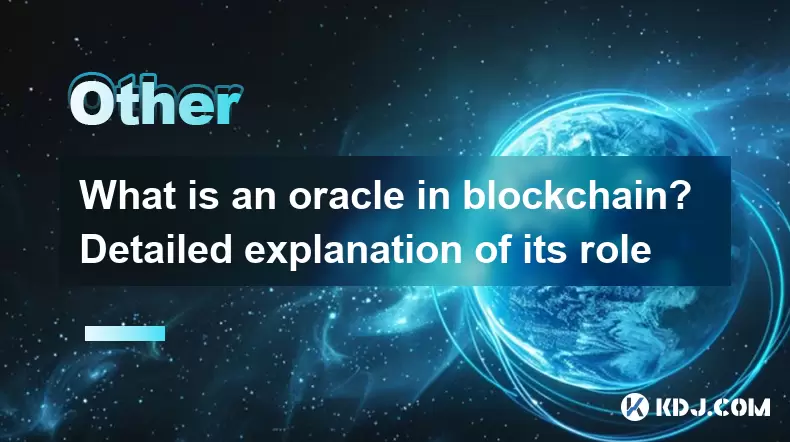
What is an oracle in blockchain? Detailed explanation of its role
Jun 21,2025 at 06:14am
Understanding the Concept of an Oracle in BlockchainIn the realm of blockchain technology, an oracle is a trusted third-party service that connects smart contracts with real-world data. Smart contracts are self-executing agreements where the terms are written directly into code and run on a blockchain network. However, these contracts operate in a close...
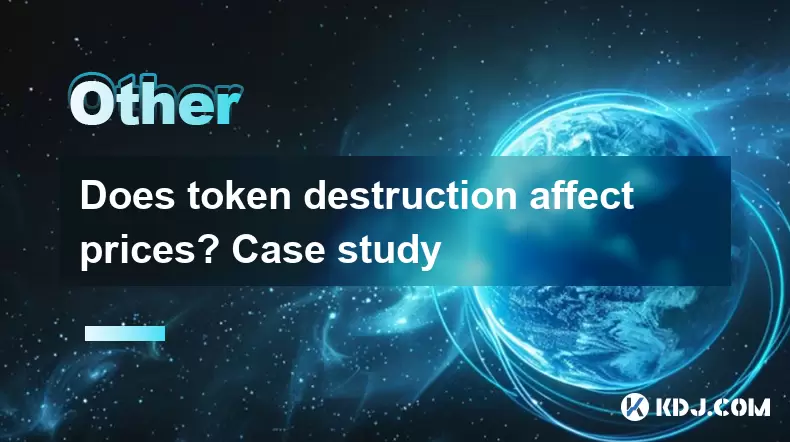
Does token destruction affect prices? Case study
Jun 22,2025 at 02:50am
Understanding Token DestructionToken destruction, commonly referred to as token burning, is a process where a portion of cryptocurrency tokens is permanently removed from circulation. This is typically done by sending the tokens to a non-recoverable wallet address, effectively reducing the total supply. Projects may implement token burns to create scarc...
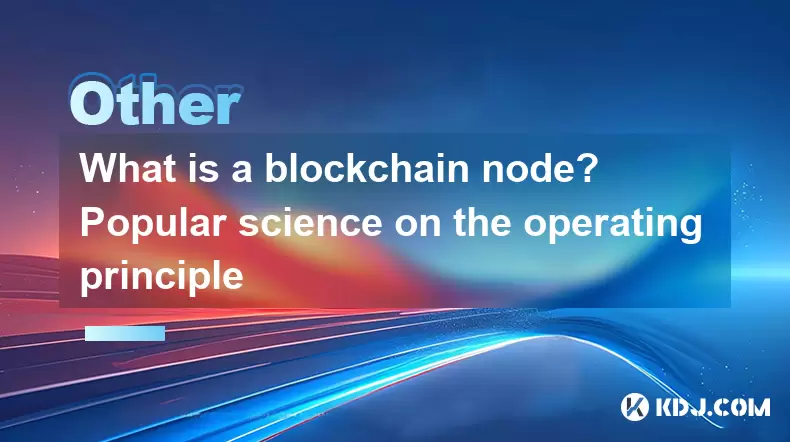
What is a blockchain node? Popular science on the operating principle
Jun 22,2025 at 11:00pm
Understanding the Basics of a Blockchain NodeA blockchain node is essentially a computer connected to a blockchain network that participates in validating and storing transaction data. Each node plays a critical role in maintaining the integrity, transparency, and decentralization of the blockchain. Unlike traditional centralized systems where a single ...
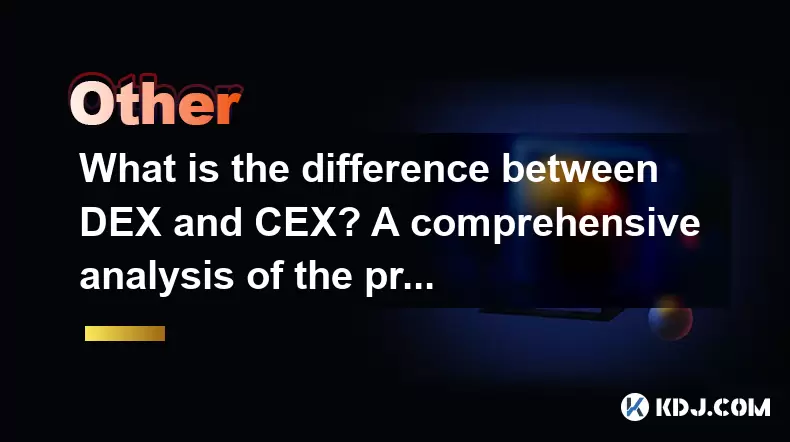
What is the difference between DEX and CEX? A comprehensive analysis of the pros and cons
Jun 24,2025 at 09:42am
What is a DEX (Decentralized Exchange)?A DEX, or Decentralized Exchange, operates without a central authority. Unlike traditional platforms, DEXs allow users to trade cryptocurrencies directly from their wallets. These exchanges rely on smart contracts to facilitate transactions, ensuring that no intermediary holds user funds. One of the most notable fe...
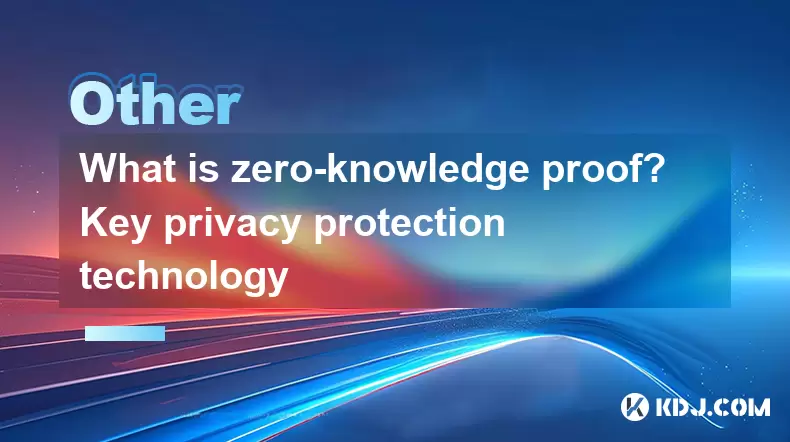
What is zero-knowledge proof? Key privacy protection technology
Jun 22,2025 at 07:29pm
Understanding Zero-Knowledge ProofZero-knowledge proof (ZKP) is a cryptographic method that allows one party to prove to another party that they know a value or information without revealing the actual content of that information. This concept is particularly important in the realm of privacy protection technologies, especially within blockchain and cry...
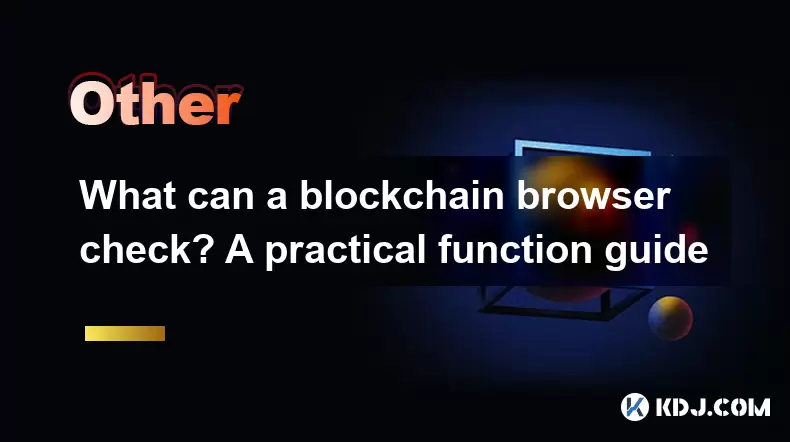
What can a blockchain browser check? A practical function guide
Jun 20,2025 at 07:35pm
Understanding the Role of a Blockchain BrowserA blockchain browser serves as a powerful tool for anyone interacting with blockchain networks. It allows users to explore, verify, and analyze data stored on the blockchain in real time. Unlike traditional ledgers or databases that are centralized, blockchains are decentralized and publicly accessible. This...

What is an oracle in blockchain? Detailed explanation of its role
Jun 21,2025 at 06:14am
Understanding the Concept of an Oracle in BlockchainIn the realm of blockchain technology, an oracle is a trusted third-party service that connects smart contracts with real-world data. Smart contracts are self-executing agreements where the terms are written directly into code and run on a blockchain network. However, these contracts operate in a close...

Does token destruction affect prices? Case study
Jun 22,2025 at 02:50am
Understanding Token DestructionToken destruction, commonly referred to as token burning, is a process where a portion of cryptocurrency tokens is permanently removed from circulation. This is typically done by sending the tokens to a non-recoverable wallet address, effectively reducing the total supply. Projects may implement token burns to create scarc...

What is a blockchain node? Popular science on the operating principle
Jun 22,2025 at 11:00pm
Understanding the Basics of a Blockchain NodeA blockchain node is essentially a computer connected to a blockchain network that participates in validating and storing transaction data. Each node plays a critical role in maintaining the integrity, transparency, and decentralization of the blockchain. Unlike traditional centralized systems where a single ...

What is the difference between DEX and CEX? A comprehensive analysis of the pros and cons
Jun 24,2025 at 09:42am
What is a DEX (Decentralized Exchange)?A DEX, or Decentralized Exchange, operates without a central authority. Unlike traditional platforms, DEXs allow users to trade cryptocurrencies directly from their wallets. These exchanges rely on smart contracts to facilitate transactions, ensuring that no intermediary holds user funds. One of the most notable fe...

What is zero-knowledge proof? Key privacy protection technology
Jun 22,2025 at 07:29pm
Understanding Zero-Knowledge ProofZero-knowledge proof (ZKP) is a cryptographic method that allows one party to prove to another party that they know a value or information without revealing the actual content of that information. This concept is particularly important in the realm of privacy protection technologies, especially within blockchain and cry...

What can a blockchain browser check? A practical function guide
Jun 20,2025 at 07:35pm
Understanding the Role of a Blockchain BrowserA blockchain browser serves as a powerful tool for anyone interacting with blockchain networks. It allows users to explore, verify, and analyze data stored on the blockchain in real time. Unlike traditional ledgers or databases that are centralized, blockchains are decentralized and publicly accessible. This...
See all articles

























































































